Using Online Games to Learn About Sustainability
This isi a list of online games I used to update regularly. While they used to all be free, many have now turned into paid apps but not all!.
Email me if you know of any others and I’ll add them (form at the bottom of the list).
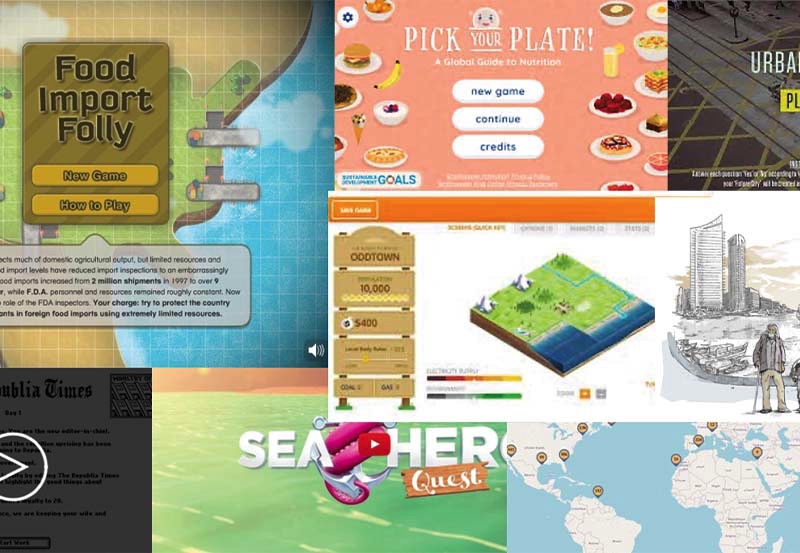
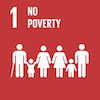
Alit,The cost of Life is about helping the Guinard family in rural Haiti get an education and improve their lives. This includes their wellness and general health, their emotional well-being and their educational levels. The goal is to try to keep the family healthy and happy for all four years of the game. The game was developed in collaboration with UNICEF.
Spent is an online game about poverty and the challenges it brings forth for each and every person. Throughout the game, players make series of decision that impacts their income. Each decision is connected to different dilemmas and problems tied to health, level of education and providing basic needs for your family.
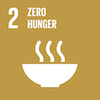
- Food Import Folly is a game, created by The New York Times, where players take on the role of Food and Drug Administration inspectors in a world of increasingly numerous food imports and increasingly unmanageable risk. Participants must protect their country by not letting any contaminated food cross the border.
- ShareTheMeal, developed by the World Food Programme, provides the opportunity for individuals to donate $0.50, enough to feed one child for one day. Users can use the app on their phone at any time to donate a meal to a child.
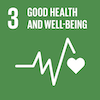
- Sea Hero Quest is a unique game that gathers data on dementia through the playing of the game. The 2 million individuals who have played the game have generated more than 6,000 years of dementia research data just by playing. The game involves navigating the high seas while navigating buoys, setting flares and spotting aquatic monsters. The route that players take as they navigate the environment is being analysed by scientists aiming to set a benchmark for ‘normal’ navigation skills, against which they can examine those of patients showing signs of early dementia.
- At-Risk is an interactive game that aims to reduce the stigma associated with mental illness in order to reduce the number of students with undetected or untreated conditions. Tailored for use among universities, it addresses the feat and stigma of mental illness that may prevent university staff and faculty from approaching and assisting students exhibiting symptoms of mental illness including depression, anxiety and thoughts of suicide.
- Foldit, developed by various departments from the University of Washington, explores the process by which living beings create the primary structure of proteins. It attempts to apply the human brain’s natural three-dimensional pattern matching abilities to predict protein structures. As more players complete the game, the researchers can create a better understanding of these protein structure and craft new medicines to promote better health and cure disease.
- The Convincer, developed by Novo Nordisk, has players work to convince the Minster of Health to invest in ways to effectively address the rising challenges of the proper diabetes initiatives.
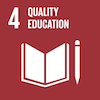
- The Republia Times puts players into the shoes of the editor-in-chief of the national newspaper of Republia, a fictional country recovering from a war with its neighbour, Antegria. Players use their newspaper to influence public opinion in the country by selecting articles that will be published and which will not be published.
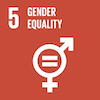
- The Water-Energy Nexus game gives participants a unique opportunity to get an insight into managing the water needs of energy production. Such insights can lead to improvements in water management leading to improved water systems’ resilience. It was developed as a training tool to be used in workshops in Southern African Development community countries.
- the uva bay game is a large-scale participatory simulation, developed by the University of Virginia, based on the Chesapeake Bay watershed. Players take the roles of stakeholders, such as farmers, developer, watermen and local policy-makers, and make decisions about their livelihoods or regulatory authority and see the impact of their decisions on their personal finances, the regional economy and health of the watershed.
- Water Risk Assessment is an online tool created by the WWF that helps companies and investors ask the right questions about water, to assess risks and offer guidance. It covers information from more than 32 industry sectors.
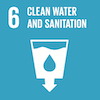
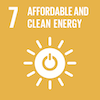
- ElectroCity lets players manage their own virtual towns and cities while teaching them about energy, sustainability and environmental management in New Zealand.
- The Solar PV Industry Simulation, developed by MIT, is a live web-based simulation where participants play the role of senior management at SunPower, a leading firm in the solar photovoltaic industry. Users compete against other firms, simulated by the computer, and set the industry conditions so as to learn about strategy under different conditions relating to learning, knowledge spillovers, and competitive behaviour.
- Clean Start is a web simulation where participants play the role of the founder of a new startup company in the exciting and competitive cleantech sector. Each quarter they must set prices, decide how many engineers and sales people to hire and set compensation including salary, stock, options and profit sharing.
- CityOne, released by IBM, helps users discover how business process management, collaborative technologies and service oriented architecture enable industry solutions that help organisations and industries adapt to new demands and build a sustainable advantage. The game looks specifically at Water, Energy, Banking and Retail.
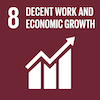
- Sweatshop is a game that educates users about the realities that many workers around the world contend with each day. Players act as the factory manager and are responsible for hiring workers while ensuring that prices stay down and product numbers stay high.
- Oiligarchy puts gamers in the seat of CEO of the world’s biggest oil company, confronting them with real challenges like corruption and drilling around the world and oil addiction.
- The Business Ethics Challenge, developed by Novo Nordisk, looks at how to deal with business ethics issues in everyday business situations while ensuring a balance between sales targets and company reputation.
- McDonald’s game was developed to explain to their customers the challenges of running a business, including some of the negative impacts that corporations such as theirs have on society and the environment – from rainforest destruction to working conditions, faulty advertising campaigns, food poisoning, etc.
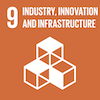
- Green&Great is a simulation game in which players assume the role of managers in large consulting firms. Their companies compete for clients and seek to make a profit, while achieving social goals and reducing environmental impacts. By facing the consequences of their own decisions, players learn and experience the importance of business sustainability as a source of competitive advantage.
- Making is a tool to inspire designers and creators to make better choices in the materials they use. Powered by Nike Materials Sustainability Index, the app provides the information to enable users to make real time, predictive decisions.
- OpenSourceMap provides a database of supply chain maps for companies all around the world which includes the companies’ suppliers, the suppliers’ suppliers and all other stakeholders across their supply chain.
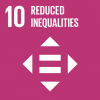
Evoke is a ten week crash course in changing the world. The goal of this social network game is to help empower people all over the world to come up with creative solutions to our most urgent social problems. The game was developed by the World Bank Institute and is appropriate for all ages.
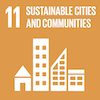
- Stop Disasters is a disaster simulation game from the UN/ISDR (International Strategy for Disaster Reduction). Each scenario takes between 10 and 20 minutes to play and there are five scenarios each available at an easy, medium or hard difficulty level. The site also provides a range of teaching materials around different types of disasters including tsunamis, floods, wildfires and earthquakes.
- Disaster Detector teaches players how to analyse and interpret data on natural disasters in order to mitigate the effects of those disasters and also forecast future catastrophic events. The aim is to help the fictional town of Smithsonville predict and prepare for natural disasters. The game was developed by the US Department of Education.
- Sust. Has three games. An environment game (how you live in your home), a building game (building a sustainable house using a fixed budget) and MySustTown (building houses, schools, developments have positive and negative impacts on the town’s sustainability).
- Urbanology, a project launched by BMW Guggenheim Lab, is a quick game that forces users to make choices about urban issues, producing some quick findings based on choice. By answering questions relating to education, housing, healthcare, infrastructure and mobility, users “build” a city that matches their indicated desires and needs. Their city is then compared with other cities around the world.
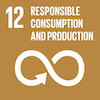
- Consumer Consequences is an interactive game designed to illustrate the impact of our lifestyles on Earth. It asks players a series of questions about their lifestyle and will show the player how many Earths of natural resources it would take to sustain all humans if they lived like us.
- Oceanopolis is a Facebook game designed to educate users on sustainable living. The users protect their island paradise from being buried under recyclable rubbish. Players must turn the trash into treasure by recycling and upcycling.
- Wise up on Waste is an app developed by Unilever that aims to save costs in professional kitchens by reducing food waste. The app provides waste management tools as well as tips to reduce food waste.
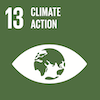
- effects that climate change will have on different species around the world while also encouraging players to examine how their own behaviours and ecological footprint will impact the planet. It was developed by Sydney University, The Rainforest Alliance and the Wildlife Conservation Society.
- Climate Challenge is a game aimed at young professionals based on real climate change data where players can try out different approaches for themselves and learn about the issues. It was developed by the Oxford University Centre for the Environment and scientists from the Intergovernmental Panel on Climate Change. The player takes on the role of the President of Europe, choosing policies to reduce carbon dioxide emissions from 2000 to 2100. The player has to balance emissions reduction while making sure there is enough electricity, water and food for people, whilst also managing their spending and popularity with the electorate.
- EnviroMan, developed by Novo Nordisk, looks at climate change and how to strike the right balance between economy and environment.
- World Climate is a group role-playing simulation of the international climate change negotiations. The exercise provides participants the chance to explore the risks of climate change and the challenges of negotiating international agreements to reduce greenhouse gas emissions. Participants play negotiators representing countries and regional blocs that work to create an agreement that limited climate change.
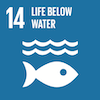
- Ice Flows, developed by the University of Exeter, the National Environment Research Council and the British Antarctic Survey is a game which tasks players with controlling the size of the ice sheet in order to get penguins to their desired destination. The climate changes, whether that means decreasing snowfall or increasing ocean temperatures, make it harder (or easier) for the penguins to catch fish, and thrive in their environment.
- The Fish Game gives players 10 days to catch as many fish as they can to support their family. Several other version of the game exists which change the rules slightly. The object of the game is to have as many fish as possible by the end of the game while still keeping the fish population healthy.
- Fishbanks is a multiplayer web based simulation in which participants play the role of fishers and seek to maximise their net worth as they compete against other players and deal with variations in fish stocks and their catch. Participants buy, sell, and build ships, decide where to fish and negotiate with one another.
- Tragedy of the Tuna aims to educate students about the concept of the “tragedy of the commons.” In this game, each student or group of students represent a county in control of a tuna fishing fleet and makes decisions about fleet size and deployment. As the game progresses, teams vie to stay afloat as the competition for the shared fish population becomes more intense.
- Marine Debris Tracker lets anyone track and report marine litter from anywhere in the world on a mobile phone, helping beach clean-up efforts and protecting our oceans. Data is easy to upload and can be downloaded in excel for analysis.
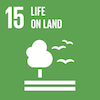
- Climate Game is an interactive online game that sets you on a quest to settle on an uninhabited island covered by green trees and thick forests. You can harvest, use and plant trees, manage your income to develop island infrastructure. But, beware of the consequences of your action.
- About That Forest is a web-based role playing simulation that takes place in a forest and the community that lives in it. Participants take the role of the people living in the forest and need to manage it sustainably.
- Forest Cover Analyzer, created by the World Resource Institute, enables users to assess forest cover change and risks related to sustainable palm oil production in areas of Indonesia. Another app, the Suitability Mapper, enables users to identify potentially suitable sites for sustainable palm oil production.
- Global Forest Watch provides global maps and data for tree cover gain and loss.
- The Good Fish Guide is an app that provides in depth information on how sustainable different types of fish are. Similar apps have been developed in other regions of the world including Australia.
- International BarCode of Life is the largest biodiversity genomics initiative ever undertaken aimed at cataloguing all species on the planet.
- ESRI is a detailed map of the world that defines bio climate, landform, geology and land cover information. It was created by the US Geological Survey and includes climate change data.
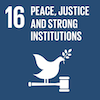
- Syrian Journey, developed by the BBC, is a digital product that explores the exodus of the Syrian people. The project aims to bring audience awareness of the plight of Syrian refugees.
- Endgame: Syria is a game that examines the complexities of the Syrian civil war. Played from the perspective of the Syrian rebels, players must balance the in game currencies of morale and support against the costs of fighting in the war and decide when and if the time is right to accept a peace treaty.
- Darful is Dying is a narrative-based simulation that puts you in the shoes of a displaced Darfurian refugee. The game is based on 2006 statistics and data.
- PeaceMaker, developed at Carnegie Mellon, challenges players to establish peace in the Middle East. Players can take the perspective of the Israeli Prime Minister or the Palestinian President and react to unpredictable real-world events. The ultimate goal is to create virtual peace and be awarded the Nobel Peace Prize.

